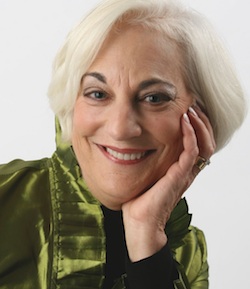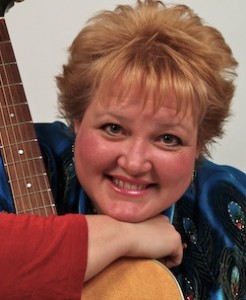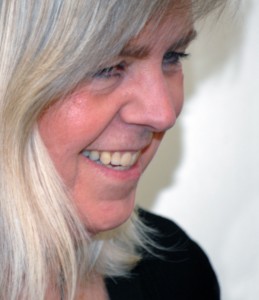
Jan. 23, 2014, Vol. 12, Issue 2
The headline caught my eye: “Laugh at Your Peril, Study Says.”
What? What could that mean? So, I read on . . . it seems that a scholarly review from a British medical journal describes the many harmful effects of laughter — things like dislocated jaws, hernia protrusion, asthma attacks, headaches, cardiac arrhythmia, fainting, and even “giggle incontinence,” as reported in a 1982 Lancet paper. (Hmmm. Our speaker Jana Stanfield, has a topic titled “Laugh ‘til You Leak,” and we call that a good thing!)
The article was based on an analysis titled, “Laughter and MIRTH (Methodical Investigation of Risibility, Therapeutic and Harmful,” drawn from about 5,000 studies, and published in the BMJ, formerly known as The British Medical Journal. Turns out, every December they feature lighthearted (yet rigorously researched) articles. If you follow the link, and if you can read through the scientific jargon, you will see that the authors, most interestingly, did have a sense of humor in writing this report.
As did a few of our humor speakers, whom I asked to comment about it. They each responded with a grain of salt, and, of course, a sense of humor.
Speaking of Humor –
Panty Liners to the Rescue
Susan Sparks, author of Laugh Your Way to Grace:
“As an ex-lawyer (turned minister and standup comedian), I always lead with my best argument.  Why do I disagree with this article? Because it’s a British study on humor. Has there ever been a clearer oxymoron? ‘British humor?’ Please. In addition to this obvious cultural bias, numerous studies prove that laughter is healing. It can improve heart and lung functions, boost our immune systems and reduce stress. These reports have been affirmed by such medical groups as the Mayo Clinic and the American Cancer Society.
Why do I disagree with this article? Because it’s a British study on humor. Has there ever been a clearer oxymoron? ‘British humor?’ Please. In addition to this obvious cultural bias, numerous studies prove that laughter is healing. It can improve heart and lung functions, boost our immune systems and reduce stress. These reports have been affirmed by such medical groups as the Mayo Clinic and the American Cancer Society.
And if you don’t believe the reports — believe me! I am a breast cancer survivor and I can personally testify to the power of humor in my own healing. In addition to the physical healing mentioned above, the ability to laugh in a place of pain provided me a great source of empowerment; it reminded me that cancer was simply what I was experiencing — not who I was. Bottom line? British study? HA! I laugh.”
Bobbe White, recognized expert on laughter and laughter therapy, and author of Life in the Laugh Lane:
“This article is somewhat distressing, but as with every pleasurable vice, known to man – and woman – excessive use of anything can be harmful, be it chocolate, exercise, wine, or heaven help us, now, laughter.
“Personally, I would take a locked jaw over a droopy (unhappy) jaw. And a headache from laughing? Well,  people get headaches from ice cream, but that has never stopped us from overindulging, has it?
people get headaches from ice cream, but that has never stopped us from overindulging, has it?
“As for giggle incontinence, there are millions of women everywhere who suffer from this. So many, that we could easily set up a nationwide network of support groups for those of us who cry tears of laughter from our eyes and other places. And we really don’t care. We’d rather have the laughter, thank you very much. As a humorous motivational speaker, I enjoy hearing comments such as:
‘Thanks! I needed that!’
‘I had a headache at the beginning, but now it’s gone!’
‘My face hurts or my sides were splitting . . . that was THE best time ever!’
“Of course what makes me swell with pride during a presentation is when someone is dabbing their eyes (craughers, i.e., those who cry&laugh simultaneously) or women yelling: ‘Stop it, I’ll wet my pants.’
“One study reported that at any given gym, 70% of the women are sporting Carefree minis. These are smart women. They are preparing for bouts of anything, from exertion to hysterical laughter — all within an understood pact, rather like the ‘Haha Sisterhood.’ And we are happy to accept this plight if we get a good guffaw or giggle out of it.
“I admit that some of the complications caused by over-laughing in this report appear frightening, and may give me brief pause for consideration, but given the choice between terminal seriousness and laughing, I’d rather die laughing. I think it would be amazing if our last moments of life could be snickers (both of the giggle and chocolate type) while trying to gasp, ‘You totally KILL me!’ Even if it did.”
Deb Gauldin, RN, popular humorist, singing nurse, and motivational humorist specializing in healthcare morale and women’s well being:
“Just as any publicity is considered good publicity, research about the benefits … and even the risks of laughter is always good,” says Deb. She should know. A long time  board member of The Association for Applied and Therapeutic Humor (AATH) and member of the International Society for Humor Studies, Deb has been debunking myths and promoting laughter for over twenty years. “It’s an exciting time for people researching humor and laughter. With new brain scan imaging techniques, the science is finally catching up with what we’ve always known.”
board member of The Association for Applied and Therapeutic Humor (AATH) and member of the International Society for Humor Studies, Deb has been debunking myths and promoting laughter for over twenty years. “It’s an exciting time for people researching humor and laughter. With new brain scan imaging techniques, the science is finally catching up with what we’ve always known.”
Even so, Deb reports she has personally conducted a peer reviewed study disproving any harmful side effects of laughter. After working with The Speak Well Being Group for fifteen years, she concludes, “If laughter were in fact dangerous, thousands upon thousands of women who’ve been entertained and inspired by Barbara’s speakers would have died on the spot.” Deb’s recommendation? Grab a panty liner and take the risk!
Right on, Deb!
CONCLUSION:
So, there you have it.
In all fairness, the study did include research on both the beneficial and “harmful” affects of laughter. Under “Limitations of Study,” the authors noted, “Some readers may ignore the benefits of laughter—that would be serious; others may dismiss its harms—we call them the laughing cavalier.”
And in “Discussion,” they added wryly, “These conclusions are necessarily tentative. It remains to be seen whether, for example, sick jokes make you ill, if dry wit causes dehydration, or jokes in bad taste cause dysgeusia, and whether our views on comedians stand up to further scrutiny.”
They also noted that Embase and Medline do not yet index some potential sources of information, including HUMOR: International Journal of Humor Research, Therapeutic Humor, Cahiers de recherche de CORHUM-CRIH, the European Journal of Humour Research, and the Israeli Journal of Humor Research (yet).
This theory is worth testing out with real crowds, and your audiences will flock to your laboratory when you do. My thesis is that laughter draws crowds like nothing else, whether the specific topic is women’s health, cancer, heart health, or nurse appreciation. Especially since I have found a strong correlation between humor and inspiration. To test that hypothesis and get additional information about who are the funniest women in the category you are looking for, women who can lighten up your event and draw in women to reap the benefits of laughter, email me at barbara@speakwellbeing.com or give me a call at 503-699-5031.
Giggle Happy
Frankly, I don’t thing there are too many things better than a good giggle, or long, hardy laughter — the kind where you almost can’t stop yourself. I certainly don’t get enough of that, and when I do, I REALLY appreciate it.
This whole topic just makes me realize I need more of that, and I’m going to look for ways to bring more of it into my life. Saying that, I realize some of the best laughs are when I laugh at myself — when the joke truly is on me. And that means being a little more vulnerable, a little more open — possibly even foolish. Bring it on. I’ll take my chances with the benefits of laughter over, as Bobbe says, an unhappy jaw. How about you?
Until next time, find the laughter in your life. Go ahead – giggle, roar, shake it. EnJOY! Take care of yourself for your well being and those you love.
Yours truly,
Barbara
 For Your Well Being is published bi-weekly. We bring you insider speaker reports, exclusive stories about special events around the country, meeting planner tips, and fun stuff from the worlds of health and well being. Be well and be in the know!
For Your Well Being is published bi-weekly. We bring you insider speaker reports, exclusive stories about special events around the country, meeting planner tips, and fun stuff from the worlds of health and well being. Be well and be in the know!
The Speak Well Being Group is a specialized speakers bureau, focusing on speakers for hospital-sponsored community events, healthcare organizations, nurses, conferences and women’s groups. Our speakers are hand-selected. They are not only experts in their fields, they connect with their audiences while bringing them life-changing information, smiles of recognition and ultimately a sense of well being and hope.
Finding the perfect keynote speaker for your special event or conference is my personal passion, not just once, but year after year. It brings me great joy to know that your audience was delighted and moved by the speaker we selected together. I’m committed to making the process easy, pleasant and fun.
